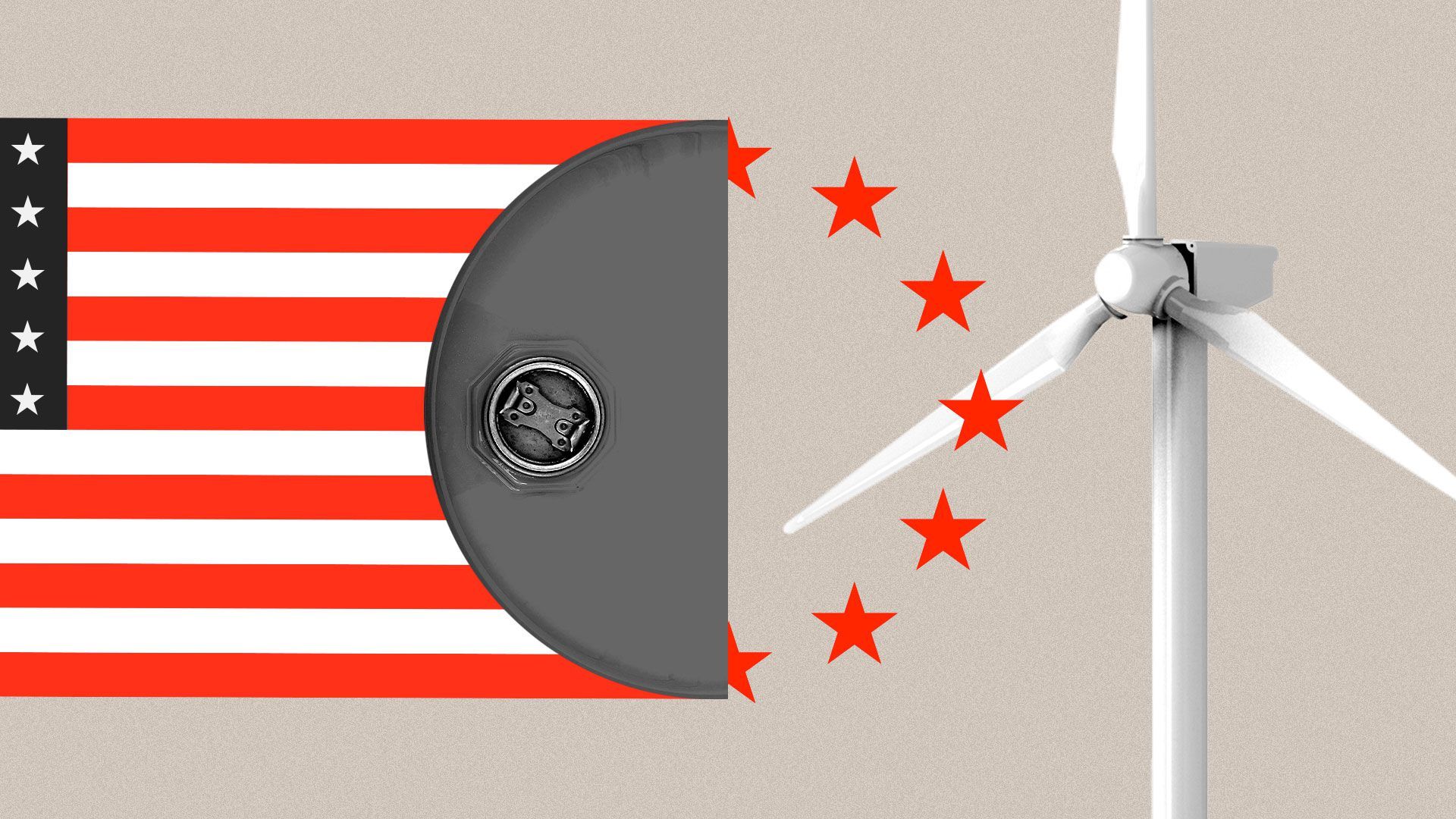Coronavirus hastens Big Oil's Atlantic divide on climate change
Add Axios as your preferred source to
see more of our stories on Google.

Illustration: Aïda Amer/Axios
The pandemic is accelerating a divide between European and American oil companies over climate change and clean energy.
Why it matters: Bottom lines and investor returns will be vastly different across the corporate spectrum depending on how aggressively the world tackles climate change in the coming decades.
Driving the news: BP announced this week what experts are calling the most aggressive oil-company strategy to evolve away from oil and gas to cleaner energy sources. The move, originally planned for September, came alongside a dividend cut and a $6.7 billion loss in the company's second-quarter earnings.
- This shift, which started before the pandemic but is now accentuated by it, stands in stark contrast to American companies. These firms are so far not making sizable moves toward renewables and away from oil and gas, regardless of the coronavirus.
“In modern times, there’s never been a bigger strategic spread among the major companies as exists today,” said Dan Yergin, a longtime energy expert and vice chairman of consultancy IHS Markit. “They’re all looking at the same evidence, but how they define their role is quite different. And it does seem that the great differentiator is the Atlantic Ocean.”
The big picture: Economic shutdowns around the world in response to the coronavirus choked off oil demand at a time when the industry was already awash in too much of the fuel and struggling financially. Now, the world may be changing in permanent ways that tilt society away from what has been a steadily growing demand for oil despite rising concerns about its impact on the planet.
- “The coronavirus crisis has, all of a sudden, accelerated at least the potential that oil demand will plateau,” said Martijn Rats, global oil strategist at Morgan Stanley.
- Persistently low oil prices are making other sources more intriguing investments. “The profitability of investing in renewables versus oil and gas is an awful lot closer now.”
How it works: Europe’s more progressive governments and investors are major reasons why its oil companies are looking to evolve compared to their U.S. counterparts.
- “If you’re a European company, you’re looking at much more aggressive government policies,” said Yergin, a Pulitzer Prize-winning author who is about to publish another book — "The New Map: Energy, Climate, and the Clash of Nations" — next month.
- If Democrats’ presumptive nominee Joe Biden wins and the party takes control of Congress, American companies could be in a similar boat.
The intrigue: Rats says there’s two competing schools of thought about the future and oil companies’ roles in it.
“If you think that there is a more important role for oil and gas and you should simply stick to your knitting, then you end up aligned with the views of U.S. majors. If you take the view that climate change is a disruptor effect and energy companies need to change with the times, then you end up doing what European majors are doing.”
The bottom line: BP’s stock rose 6% after unveiling its plan Tuesday morning, indicating investors liked it, but it’s too soon to tell which school of thought will be closer to the future reality decades from now.
“It’s not ordained that one strategy is right and one strategy is wrong,” Yergin said.
Go deeper: Charts illustrating the transatlantic divide
